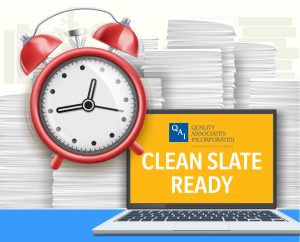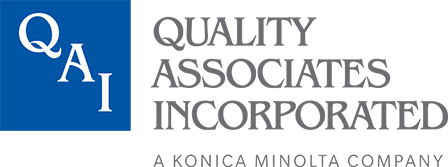WATCH OUR Solution Focused Webinar
Fairfax County: A Model for Compliance
Fairfax County is setting the bar for Clean Slate readiness—using digitization as the backbone of compliance. By modernizing criminal justice records, they show how digital transformation drives compliance with the Code of Virginia: § 19.2-392.5. (Effective July 1, 2026) Sealing defined; effect of sealing.
Watch our Webinar On-Demand to discover how the Fairfax County Circuit Court and Police Department are leading the way in the sealing and expungement of criminal case files and evidence. Learn from their compliance roadmap—and discover how to scale it for your agency.
Featured Speakers:

Laura Starr, Webinar Host
Consultant and Advisor, Intelligent Information Management Practice, Quality Associates, Inc.

Christopher J. Falcon
Clerk of the Court
Fairfax Circuit Court

Major Rex Pagerie
Commander of Logistics and Judicial Services, Resource Management Bureau, Fairfax County Police Department

The Clock is ticking—Are you ready?
Navigating New Sealing Laws with Flexible Compliance Strategies
A Nationwide Policy Shift
Clean Slate laws are transforming how criminal records are managed across the United States. From Pennsylvania to California, states are adopting new mandates that require the automatic or petition-based sealing of eligible records. The trend is clear: digitization is essential for compliance.
System-Wide Impact
Clean Slate legislation affects every corner of the criminal justice and legal system, including:
- Courts: Circuit, district, and municipal courts must identify and seal eligible records efficiently.
- Law Enforcement: Agencies must ensure arrest records and case files are properly managed and accessible for authorized use while complying with sealing mandates.
- Prosecutors and Public Defenders: Legal teams must coordinate on record eligibility, petitions, and sealing procedures.
- Corrections and Probation Departments: Accurate recordkeeping and timely updates are critical for eligibility tracking.
Digitization: A Strategic Compliance Solution
Digitizing criminal case files and related records enables agencies to:
- Automate Identification & Indexing: Streamline the sealing process.
- Apply Digital Audit Trails & Retention Policies: Ensure transparency and accountability.
- Simplify Reporting & Oversight: Meet state-mandated compliance deadlines.
- Enhance Interagency Collaboration: Enable secure, real-time data sharing.
The Challenge of Paper-Based Systems
Many agencies still rely on paper records, which pose serious risks:
- Labor-Intensive Review: Manual file audits are slow and error-prone.
- Disclosure Risks: Misfiled or unsealed records can lead to unauthorized access.
- Lack of Oversight: Paper systems lack audit trails and centralized tracking.
- Poor Interagency Coordination: Sharing records across departments is inefficient and inconsistent.
Future-Proof Your Operations
Whether you’re a court clerk, police department, prosecutor’s office, or public defender, digitization helps you:
- Meet Clean Slate compliance deadlines in your state
- Reduce manual labor and operational costs
- Free up physical storage space
- Modernize service delivery and public engagement
At QAI, we specialize in secure, cost-effective digitization strategies tailored to the unique needs of criminal justice agencies. Our team understands the urgency and complexity of Clean Slate compliance—and we’re here to help.
State Campaigns
To date, 13 states, and Washington D.C., have passed laws that meet CSI’s criteria for Clean Slate legislation. Additionally, there are active Clean Slate campaigns in many states, and grassroots work building support for future efforts are underway in states across the country. Check out your state below:
Colorado: Visit Website
Connecticut: Visit Website
Delaware: Visit Website
Illinois: Visit Website
Kentucky: Visit Website
Massachusetts: Visit Website
Maryland: Visit Website
Michigan: Visit Website
Missouri: Visit Website
New York: Visit Website
North Carolina: Visit Website
Oklahoma: Visit Website
Pennsylvania: Visit Website
Texas: Visit Website
Utah: Visit Website
Virginia: Visit Website
Washington, D.C.: Visit Website

